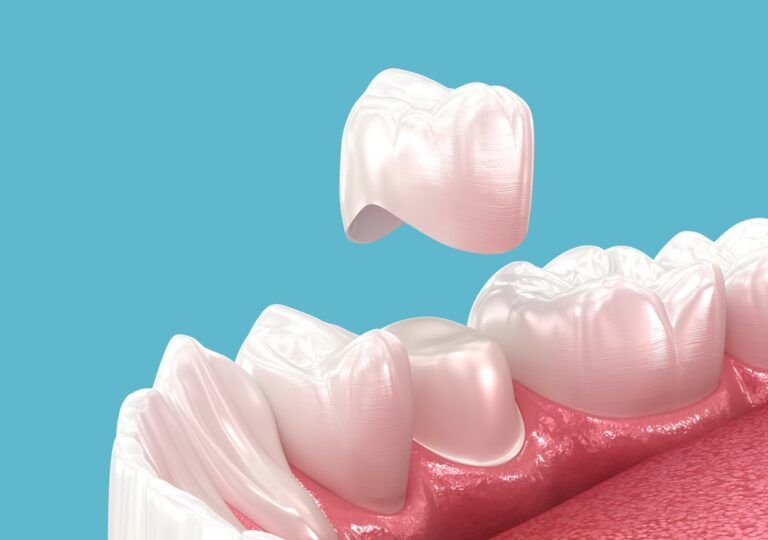Dental crowns are a highly effective solution for restoring the strength, function, and appearance of a tooth that has been compromised by damage or decay. Understanding the specific situations that call for a dental crown helps patients make informed decisions about their oral health. Dr. Jonathan McCartney of McCartney Dental in North Port, FL, explains the circumstances under which a dental crown may be recommended and how it benefits your overall dental wellness.
What Are Dental Crowns?
A dental crown, also known as a “cap,” is a custom-made restoration that fits over a damaged tooth to restore its shape, size, strength, and aesthetic appeal. Crowns are typically made of materials like porcelain, ceramic, metal, or a combination of these, selected based on the tooth’s location, the patient’s preference, and the crown’s durability. Crowns offer a long-term solution by protecting the underlying tooth structure and improving its function.
When Are Dental Crowns Necessary?
Dental crowns aren’t suitable for every dental issue. Dr. McCartney recommends them for specific situations where other forms of treatment might not provide adequate protection or functionality. Here are some of the primary circumstances that may lead to a dental crown recommendation:
- Extensive Tooth Decay
In cases of severe decay, a filling may not suffice to restore the tooth’s integrity. When a tooth has lost a significant portion of its structure to decay, a crown is often necessary to provide long-term stability and protection. Unlike fillings, which fill in smaller cavities, crowns encase the entire tooth, offering full coverage against further damage. - Large Fillings
Sometimes, a tooth has undergone multiple fillings over time, or a single filling is so large that it compromises the tooth’s strength. A crown may be recommended to support the tooth in these instances, as the crown distributes pressure more evenly, reducing the risk of fractures. - Cracked or Fractured Teeth
Teeth with visible cracks or fractures are particularly vulnerable to worsening damage if left untreated. Crowns offer a practical solution for restoring a fractured tooth by encapsulating it, thus minimizing stress on the compromised structure. A crown can prevent a crack from spreading further, preserving the natural tooth. - After Root Canal Therapy
Root canal treatment is a procedure that removes infected or damaged pulp from inside a tooth, leaving it structurally weaker. Once the procedure is completed, Dr. McCartney often recommends a crown to protect the tooth from fractures and ensure it can withstand daily chewing forces. Without a crown, a root canal-treated tooth is at a higher risk of breaking. - Tooth Wear from Grinding
Teeth grinding, or bruxism, can wear down teeth significantly over time. For patients who exhibit advanced signs of grinding, crowns are often recommended to restore the original shape and functionality of the worn-down teeth. Crowns offer added durability and can withstand the pressure from grinding. - Discolored or Misshapen Teeth
In some cases, patients opt for crowns to improve the appearance of a tooth that is severely discolored or misshapen. While cosmetic treatments like veneers are also available, crowns provide more comprehensive coverage for those looking to change the appearance and strength of the affected tooth. - Dental Implants and Bridges
Crowns play a crucial role in dental implants and bridges. When replacing a missing tooth with an implant, a crown is attached to the implant post to complete the restoration. Crowns are also used in dental bridges to cap adjacent teeth, providing support for the bridge that spans a gap caused by missing teeth.
The Process of Getting a Dental Crown
Dr. McCartney follows a meticulous process to ensure that each crown is a perfect fit and meets the patient’s functional and aesthetic needs. Here’s a breakdown of what to expect:
- Initial Examination and Preparation
During the initial consultation, Dr. McCartney assesses the affected tooth and discusses the options with the patient. If a crown is recommended, the tooth is prepared by reshaping it to accommodate the crown. - Impressions and Temporary Crown
Once the tooth is prepared, an impression is taken to ensure the permanent crown fits precisely. While the permanent crown is being crafted in a dental lab, a temporary crown is placed over the tooth for protection. - Fitting the Permanent Crown
Once the permanent crown is ready, it is carefully fitted and bonded to the tooth. Dr. McCartney checks the fit, color, and alignment to ensure it feels comfortable and functions correctly. - Final Adjustments and Aftercare
After placing the crown, any final adjustments are made to ensure the bite feels natural. Dr. McCartney provides care instructions to help patients maintain the crown and prolong its lifespan.
Benefits of Dental Crowns
Dental crowns are a versatile and effective solution for a range of dental issues. Here’s why crowns are often recommended over other types of restorations:
- Protection Against Further Damage: A crown covers the entire tooth, offering comprehensive protection against decay, fractures, and general wear.
- Restored Functionality: Crowns allow patients to chew and bite with confidence, as they restore the tooth’s original strength.
- Aesthetic Improvement: With crowns made from materials like porcelain and ceramic, patients can achieve a natural look that blends seamlessly with surrounding teeth.
- Longevity: With proper care, dental crowns can last for many years, making them a worthwhile investment for long-term oral health.
Alternatives to Crowns
While dental crowns are highly effective, they’re not always the only option. Depending on the extent of the damage or decay, Dr. McCartney may consider alternatives such as:
- Dental Fillings: For minor cavities, a filling might be sufficient to restore the tooth without the need for a crown.
- Inlays and Onlays: These are ideal for moderate decay where a filling isn’t enough, but a full crown is not necessary. Inlays and onlays cover the damaged area without encasing the entire tooth.
- Bonding: In cases of small chips or cracks, dental bonding can offer a less invasive alternative, though it may not provide the same level of durability as a crown.
Caring for Your Dental Crown
Once a crown is in place, maintaining good oral hygiene is essential to maximize its lifespan. Here are a few tips to care for your crown:
- Practice Good Oral Hygiene: Brush and floss daily to prevent decay around the base of the crown, as decay can still affect the tooth structure beneath the crown.
- Avoid Hard or Sticky Foods: While crowns are durable, they can be damaged by overly hard or sticky foods, which may cause them to crack or come loose.
- Regular Dental Check-Ups: Routine check-ups allow Dr. McCartney to monitor the crown and address any concerns early on, ensuring it remains functional and intact.
Investing in Your Oral Health
A dental crown is an investment in both functionality and aesthetics. Crowns allow patients to maintain natural chewing habits, speak clearly, and enjoy a smile that looks and feels healthy. Dr. Jonathan McCartney believes that a well-informed patient can make the best decisions for their health and is always available to discuss whether a crown is the right solution for you.
McCartney Dental in North Port, FL, is dedicated to providing patients with high-quality dental care and reliable restorations. When a crown is recommended, it’s with your long-term oral health in mind.
Sources:
- Bader, J. D., & Shugars, D. A. (1993). Descriptive models of restorative treatment decisions. Journal of Dental Research.
- Choudhary, P., & Prithiviraj, D. R. (2014). A review on indications of full coverage restorations. Indian Journal of Dental Sciences.
- Hunter, A. J., & Hunter, A. R. (1990). Aesthetic considerations in tooth restoration. Journal of Esthetic and Restorative Dentistry.


